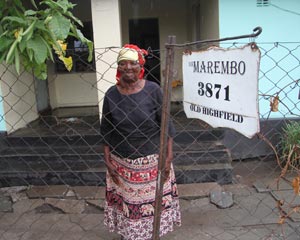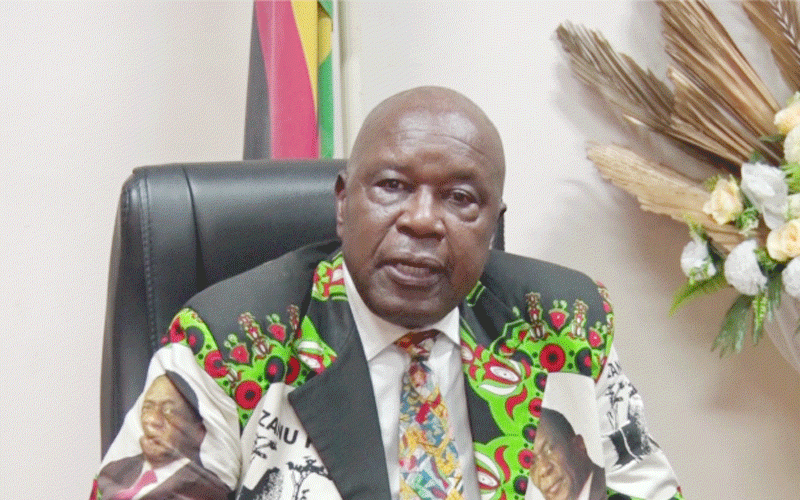
THE recent launch of the Township Tourism programme was a hurried event, which took place without adequate consultation with some owners of the targeted facilities, The Standard has established. BY JENNIFER DUBE
The government last month launched the programme targeting 13 houses that once belonged to nationalists such as President Robert Mugabe, the late Vice-President Joshua Nkomo, Enos Nkala and George Nyandoro.
Most of the houses, which will be marketed under the township tourism concept, are located in Harare’s populous suburb of Highfield.
It has emerged that some of the houses are now owned by other people, not even related to the nationalists.
But the government has said it intends to upgrade the former nationalists’ residencies to national museums under the programme.
Some of the owners of the houses said the organising team only contacted them a few days before the launch of the programme, requesting to pitch up gazebos in front of their houses.
They were only told tourists would be visiting the houses.
Others complained that they felt used after they were not given things they were promised by the organising team.
- Chamisa under fire over US$120K donation
- Mavhunga puts DeMbare into Chibuku quarterfinals
- Pension funds bet on Cabora Bassa oilfields
- Councils defy govt fire tender directive
Keep Reading
“We feel cheap after that exercise,” a daughter of one of the late nationalists said.
“They said they wanted to empower families of nationalists and the ordinary person in Highfield, but it has now become clear they were just doing the whole thing for themselves. They could not even come back to say thank you or to give us the T-shirts they promised us.” But Nyandoro’s son, Micheal, was cautious.
“We are happy that somebody has decided to remember these old men in such a way, but we are yet to get a clear picture of what exactly they intend to do,” said Micheal.
“We are yet to receive a full text of what will happen under the programme.”
Sixty-four-year old Tapfumaneyi Mutowembwa, owner of Enos Nkala’s former house, said he had not been told how he would benefit from the programme.
“You people want to take pictures of my house like your colleagues who were here earlier,” he said.
“I am not refusing, but as your old man, what am I getting out of all this?”
Mutowembwa said he acquired the house in 1985 from someone who bought it from Nkala.
“The nationalist (Nkala) himself is not here anymore. I am a pensioner and my wife and two sons are unemployed. What are we getting from the attention being given to our house?” he asked.
Gogo Anna Kanyere (65), owner of the late former Vice-President Joshua Nkomo’s house, said she believed she might have offended the government officials because they did not return to thank her after their first visit.
“They came here asking me to receive visitors. I woke up early in the morning and swept my yard. I put my sofas outside so they could sit, roasted nuts, which I served on the day,” she said.
“I danced all over the streets welcoming them but they did not return.”
Kanyere said she was, however, happy with the programme and welcomed the construction of a museum on her yard.
“Nkomo was a good man,” she said.
“We are very happy he is being remembered in such a way and will not stop anyone from coming here to see his house.”
Equally elated with the project was Gogo Marianne Marembo (71), widow of Stanslus Marembo, a liberation icon.
After the visit by government officials to her house, Marianne and two other family members are among the few who were later booked into the Meikles Hotel for two nights.
“We were very happy because we have always thought that Meikles is for those with money,” Marembo’s daughter-in-law said.
However, some neighbours complained that they had not been consulted when the programme was started and only saw people coming to visit their neighbourhood.
Efforts to get a comment from the Tourism minister Walter Mzembi were fruitless last week.
But the Friends of Joshua Trust creative director Rayban Sengwayo said his organisation, which came up with the concept, had encouraged house owners to engage at least five neighbours from each side of their houses, telling them about the programme.
Sengwayo said the project would create jobs for Highfield residents, as there would be need to upgrade social facilities including roads, toilets, eating houses and accommodation facilities for tourists.









